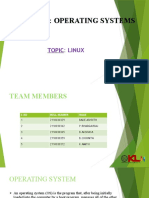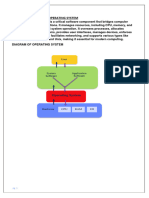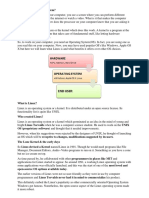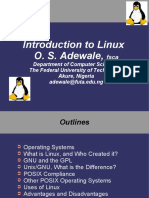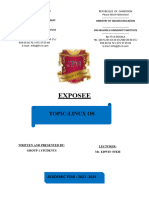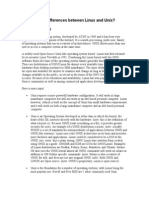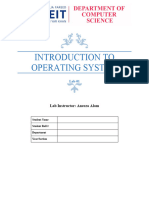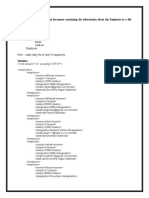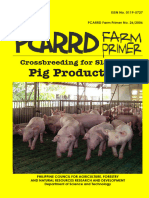0% found this document useful (0 votes)
121 views20 pagesLinux Operating System & Its Different Versions: Presented By:abhinav & Shraddha Mca 1 SEM
This document provides information on the Linux operating system and its different versions. It begins with defining an operating system and describing Unix. It then discusses components of Unix and impacts of Unix. It introduces Linux operating system and describes some major Linux distributions including Red Hat Enterprise Linux, Debian, Slackware, OpenSUSE, CentOS, Oracle Enterprise Linux, and their key features.
Uploaded by
Mandeep SinghCopyright
© Attribution Non-Commercial (BY-NC)
We take content rights seriously. If you suspect this is your content, claim it here.
Available Formats
Download as PPTX, PDF, TXT or read online on Scribd
0% found this document useful (0 votes)
121 views20 pagesLinux Operating System & Its Different Versions: Presented By:abhinav & Shraddha Mca 1 SEM
This document provides information on the Linux operating system and its different versions. It begins with defining an operating system and describing Unix. It then discusses components of Unix and impacts of Unix. It introduces Linux operating system and describes some major Linux distributions including Red Hat Enterprise Linux, Debian, Slackware, OpenSUSE, CentOS, Oracle Enterprise Linux, and their key features.
Uploaded by
Mandeep SinghCopyright
© Attribution Non-Commercial (BY-NC)
We take content rights seriously. If you suspect this is your content, claim it here.
Available Formats
Download as PPTX, PDF, TXT or read online on Scribd
/ 20




